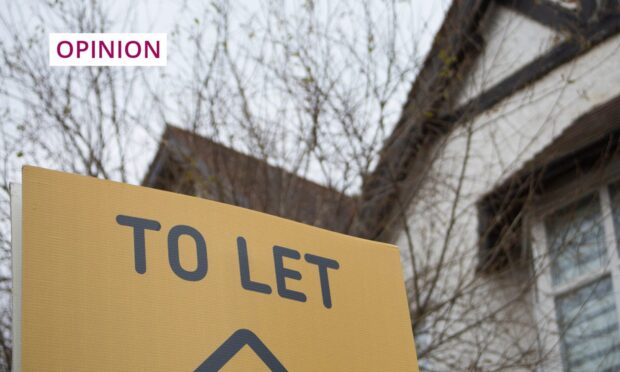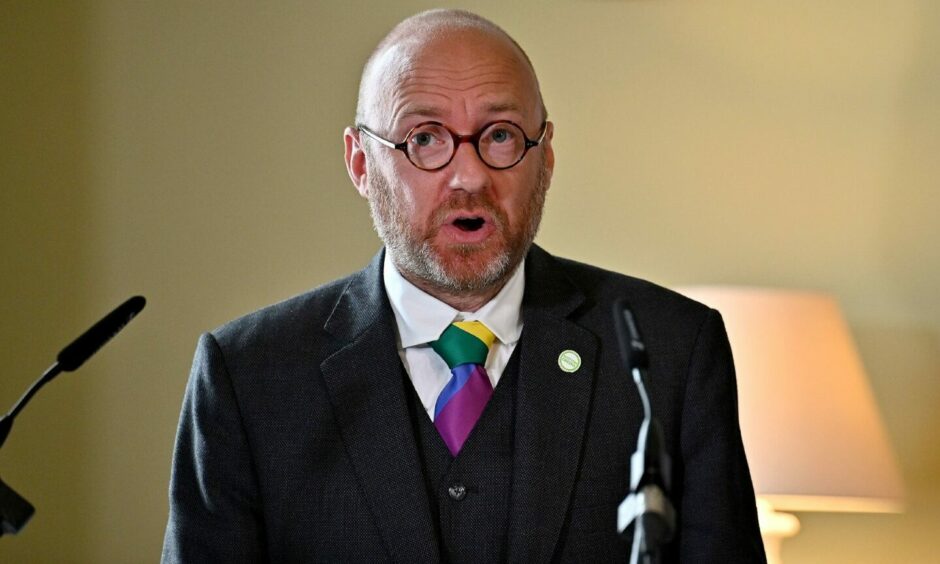A stark report this week has unmasked sky-rocketing rents across Scotland, and perhaps more importantly, why housing should prove crucial at upcoming elections.
For those trapped in the private rental market, unable to consider buying a home and unlikely to ever qualify for social housing, the spike in housing costs is unlikely to have been a surprise.
The cost of an average two-bedroom property up 50% on 2010 levels in some areas, leaving politicians with questions to answer about why prices have been allowed to rise so sharply over the last 13 years.
In Dundee, the average monthly rent for a two-bedroom property has climbed from around £497 in 2010 to £745 in 2023. Similar increases are also reported in Angus and Perth and Kinross, while in Fife rents have increased by 50.8%.
This means that a single person earning a typical salary of £26,000 a year can expect housing costs alone to eat up a shocking 42% of their income.
Why then, when it represents such a significant chunk of the “cost of living”, have successive governments responded to mammoth-increases in energy prices and other household bills, but not housing costs?
Too few among the generation which currently dominates government and the corridors of power seem not to understand the scale of the problem.
For them, the idea of one day owning your own home was not just achievable, it was expected. But now, housing is more often about survival than aspiration. If someone cannot afford a home in the first place, then simply providing support for heating bills is unlikely to be the solution.
Polling: Public agree there is a ‘housing crisis’
This reality, so different from their own, is one politicians from all parties must begin to confront seriously and with long-term solutions.
Recent research suggests the public is already ahead of our politicians, with around 77% of people agreeing there is a housing crisis. That all too common political refrain that there is “no one solution” or any “easy answers” is unlikely to be of much comfort to them.
But what of the action being taken already?
Through a rent cap put in place in 2022 as former prime minister Lizz Truss’ ill-fated mini-budget caused mortgage rates to soar, existing tenants do have some protection from sudden hikes pricing them out of their home.
But this has proven a double edged sword. The cap does nothing to protect those moving home, and landlords have also taken the opportunity to introduce huge increases in rent between tenancies so they can preemptively protect their profit margins.
Worse, some have decided they’d be better off simply catering to the short-term let market alone.
Tenants’ Rights minister Patrick Harvie has promised a new Housing Bill which will include long-term rent controls, but politicians may find these pledges of what is to come are insufficient for a growing base of the electorate fed up of inaction.
As voters head to polls next year, the electoral importance of housing policy should not be underestimated by any political hopeful. Rather than just those looking to buy or rent their first home, the generation before will also be watching their children struggle.
And any party found wanting is likely to bitterly regret it when voters get their chance pass judgement at the ballot box.













Conversation